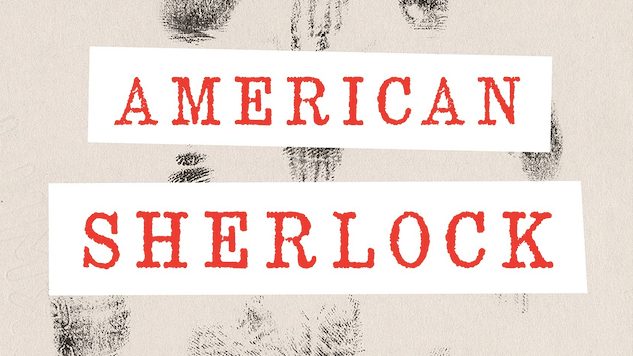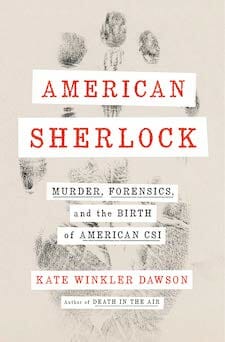American Sherlock Profiles the Man Who Shaped Modern Forensic Science
Books Reviews kate winkler dawson
“Data! Data! Data!” [Sherlock Holmes] cried impatiently. “I can’t make bricks without clay.”
—Arthur Conan Doyle, “The Adventure of the Copper Beeches”
It’s crucial—both to the structure’s fortitude and the occupants’ safety—that a bricklayer’s materials are sound. Whether humans build homes or criminal cases, the component parts must always be stable. And as Arthur Conan Doyle’s famous fictional detective explains above, this holds true in any investigation.
Criminal investigations hinge on how much data can be gathered, how clean that data is, and how correctly that data is interpreted. Edward Oscar Heinrich shaped modern forensics, forever changing American law enforcement in all three regards. American Sherlock: Murder, Forensics, and the Birth of American CSI explores Heinrich’s work and legacy, highlighting the comparison he drew to Holmes during his career as a forensic scientist. Author Kate Winkler Dawson plays the eager Dr. Watson, using real criminal investigations as case studies of Heinrich and even availing herself of the cold openings—sometimes too frequently, given that the character toiling in the lab is always Heinrich—that Doyle famously deployed.
 When crime became more lucrative with the advent of Prohibition in 1920, police and investigators found themselves simply outmatched. Northern California emerged as a hotbed of progressive, science-driven investigation, however, and Heinrich can be thanked for creating what we now think of as crime scene forensics. From comparing grains of sand to identify their geography to matching the snitching spirals of rifling to bullets, most everything you think of was either codified, honed, or popularized by Heinrich.
When crime became more lucrative with the advent of Prohibition in 1920, police and investigators found themselves simply outmatched. Northern California emerged as a hotbed of progressive, science-driven investigation, however, and Heinrich can be thanked for creating what we now think of as crime scene forensics. From comparing grains of sand to identify their geography to matching the snitching spirals of rifling to bullets, most everything you think of was either codified, honed, or popularized by Heinrich.
It has become patently obvious that we cannot move through life without leaving a trace. Sand to blood, skin cells to cell towers, the world seems primarily comprised of smoking guns now. Almost a century since science took center stage in court, we find it so easy—so comforting—to assume that we possess the necessary elements to fire strong bricks from evidential clay. Yet Dawson alludes multiple times to Heinrich’s culpability in causing too much trust into science; she just doesn’t go far enough to explain how shaken the brick-built foundation of forensics is today.
Eyewitness accounts and picking people out of a lineup resonate with juries, but they are deeply, deeply flawed as evidence. The science Heinrich espoused is, without a doubt, a better answer, seeking to apply as much objective data as possible when it comes to making the decision between a life of freedom, a life on confinement, or a life cut short.
But knowledge breeds pride, and pride blinds. It’s now believed that bullet and handwriting analyses are not solid enough science to serve as deciding factors. Neither is blood splatter analysis, a favorite for its drama and the feverish imagery it inspires. Not even something so believed and simple and well-established—well in use by Holmes’ earlier time—as fingerprints can be considered infallible. Even hair and bite marks have too much margin for error.
As machine learning winds its way deeper into the justice system, it brings with it the promise that Heinrich and other early forensic scientists did: empirical evidence to both bolster and eliminate the great deductive leaps which make humanity unique. Algorithms like invisible ovens—data goes in, bricks come out, and the method by which they are made is completely unknown—are being installed throughout our lives.
The attempt to coalesce the data around us—to stamp out the subjective as much as possible—is the noble and correct one. But to take for granted that we have done so correctly is to make the greatest sin of investigation on a broad scale: putting assumption ahead of evidence.
Take it from Holmes himself: “There is nothing more deceptive than an obvious fact.”
B. David Zarley is a senior staff writer for Freethink and an essayist, book and art critic. His writing has been featured in The Atlantic, The Verge, Jezebel, VICE Sports, Frieze, Hazlitt and numerous other publications. He lives in Chicago.